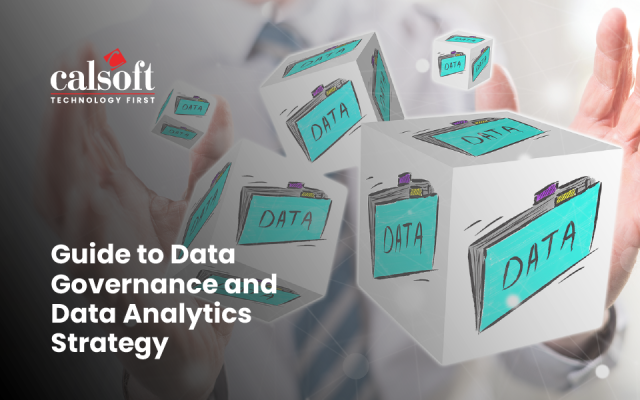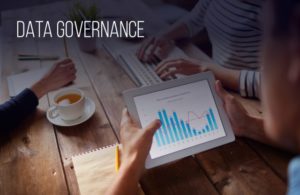It’s become so that no business can now overstress the importance of data governance.
Data is a treasure trove. Data-driven insights can propel your digital transformation initiatives, improve efficiencies, cement customer relationships, and boost bottom lines. Given the criticality of data, data governance is under the spotlight because it ensures enhanced data quality. Enhanced data quality, in turn, drives better access to data for all stakeholders, reduced data management costs, and better decision making at every level of your organization.
What is data governance?
Enterprise systems and processes today produce vast amounts of data that is hard to process and manage. Individual data points, simple in themselves — like new customer information, material, vendor, credits, debits, and payments — combine to create massive data sets. It’s also true that a considerable number of these individual data points are fed manually into the systems, leaving the door wide open for inaccuracies to creep in, which will eventually lead to wrong decisions.
Moreover, companies across sectors today are expected to provide a great customer experience to differentiate from competitors and drive loyalty. Meeting these objectives, to a great extent, depends on the efficiency of data governance.
If you pick through various definitions, you may come to believe the term ‘data governance’ refers to a collection of processes, policies, roles, standards, and metrics that help codify the efficient use of information to meet organizational goals. All these parameters could also be calibrated to validate for accuracy as per the requirements of each organization.
How data governance has become key to differentiating your customer experience
Customers today are willing to spend more for a product that provides similar quality but a better customer experience. They have become sophisticated and any attempts to get them to buy your products with unsubtle and “catch-all” marketing attempts will only be counterproductive. A sub-optimal CX will end up driving customers to the competition. Companies need to roll out highly personalized and relevant experiences at various touchpoints to persuade customers subtly to buy into their brand and then the products. This requires marketing strategies to be more data-driven. That said, the customer lifecycle extends beyond the initial sale too. It’s become important to deliver a sensitive, responsive, and personalized customer experience across all other touchpoints like customer service, social media channels, and relationship management too. And data plays a crucial role across all these functions as well.
This means that data isn’t solely IT’s responsibility. Rather, it is the most important asset to any enterprise that is looking for robust governance to ensure outstanding customer experiences.
It is common knowledge that data analytics can help improve CX across multiple touchpoints. Many brands do have granular data about their customers’ buying preferences. However, they still fail at analyzing this data to optimize their processes.
The challenge before companies is to determine that the data collected meets quality parameters, is governed efficiently, and used adroitly.
How data governance helps drive customer loyalty
Initiating data governance builds trust and subsequently, customer loyalty. Precise data guides decision-making, making it easier for businesses to identify the characteristics of loyal customers with confidence. In a complex environment, they can still build the omnichannel, 360-degree customer experience, which keeps customers engaged.
Data governance ensures customers and enterprises are always on the same page. Businesses are able to demonstrate to their customers how well they understand customer preferences, likes, and dislikes. Personalized service generates trust, which helps businesses build on existing customer relationships and derive loyalty from customers.
Problems businesses face with unorganized data
Inaccurate, inconsistent, outdated, and duplicate data may reside in siloed systems, untested because of the complexity of the ecosystem. Wrong decision-making is the inevitable consequence of basing strategies on such data. For instance, if customer data is spread across systems, it’s possible that a single customer may get multiple email communications about an offer, leading to irritation. It’s also possible that due to different versions of information about the customer spread across different systems, differing (and perhaps, contradictory) offers may get sent to the same customer.
It’s also likely that data spread out across systems will make operations inefficient due to duplication of effort. For example, multiple customer service agents may call up the same customer in response to a query, unaware that someone has already attended to the customer. The effort is wasted and the customer is subjected to unnecessary trouble.
How data governances can help overcome these challenges
To extract the maximum value out of your data, you need to establish a single version of truth for the data, to know what you have, and where you have it. You also need to ensure this data is accurate, updated, and unique.
A data governance program is focused on evaluating all aspects of the available data, including its location, quality, and reliability. It ensures high-volume data processing can be performed at scale. The program has checks and balances to determine the production and storage of good data to provide you the insights you need to take decisions with confidence.
Closing thoughts
A data-driven organization thrives on providing access to data to everyone. Effective data governance establishes that data is accurate, accessible to the authorized people at the right time, and helps a business team to arrive at meaningful, actionable results. The integrity of data is protected across the entire organization and all processes. Broad participation in data governance processes democratizes the ecosystem, creates a pool of un-siloed data, and promotes better business strategies. A cross-functional data governance team, supported by next-generation analytics, ensures informed decision-making across the entire enterprise.





